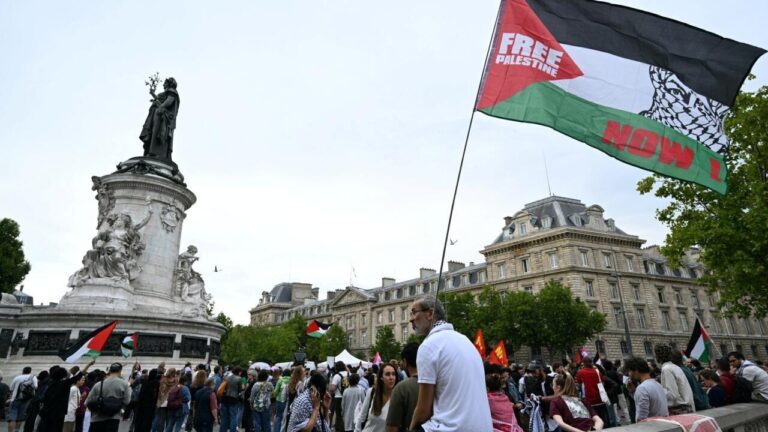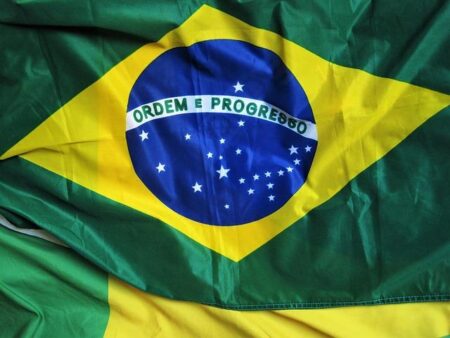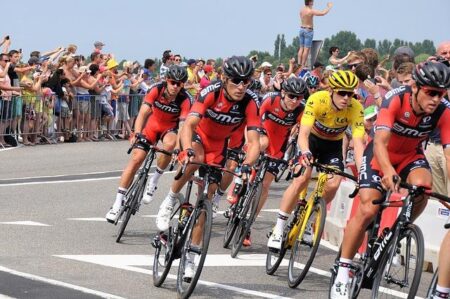In a bold act of defiance, several French mayors continue to display Palestinian flags in their towns, ignoring court rulings that have deemed such displays illegal. This contentious issue has sparked an intense debate over municipal autonomy, national law, and the ongoing Israeli-Palestinian conflict. As tensions rise, these mayors argue that their actions are a demonstration of solidarity with the Palestinian cause, even as critics warn that it undermines national unity and the principles of secularism enshrined in French law. This article examines the implications of their resistance, the legal challenges they face, and the broader societal conversations surrounding freedom of expression in France today.
Defiant Stance against Legal Rulings: French Mayors Uphold Palestinian Flag Displays
A number of French mayors have chosen to defy recent legal rulings by maintaining the display of Palestinian flags in their municipalities. This act of resistance underscores a growing sentiment among local leaders who believe that expressing solidarity with the Palestinian cause transcends legal boundaries. These mayors argue that their actions are grounded in a tradition of supporting human rights and international justice, which they feel should not be stifled by court decisions. Their stance is reminiscent of broader global movements where local governance often reflects the moral convictions of its constituents.
Critics of the legal rulings contend that these decisions overlook the rights of citizens to express solidarity with oppressed peoples. Supporters of the mayors cite various reasons for their defiance, including:
- Historical Context: A long-standing commitment to human rights.
- Community Support: Significant local backing for the cause.
- Political Statement: A way to challenge perceived injustices on a global scale.
As this situation evolves, it raises critical questions about the balance between legal frameworks and the moral imperatives that drive local governance in France. The outcome of this defiance may not only impact the municipalities involved but could also set a precedent for how similar actions are approached in the future.
Community Responses: Public Support and Opposition in the Wake of Controversy
In the wake of recent court rulings, numerous French mayors have taken a defiant stance by continuing to fly Palestinian flags, igniting a heated debate within local communities. Supporters laud these actions as a powerful statement of solidarity with the Palestinian people, arguing that local governance should reflect values of humanitarianism and international justice. Citizen groups across various municipalities have mobilized, holding demonstrations and rallies to express their backing, emphasizing themes such as:
- Solidarity with oppressed communities
- The importance of municipal autonomy
- Advocacy for peace and dialogue
Conversely, this display of solidarity has sparked backlash from certain factions, who view it as a politicization of local governance and an affront to national unity. Critics argue that the mayors’ actions undermine France’s diplomatic position and create divisions within communities already challenged by socio-political tensions. Public responses from opposition groups highlight concerns over:
- National identity and sovereignty
- The potential for increased polarization
- Legal ramifications and accountability
Legal Implications: Analyzing the Court’s Rulings and Mayors’ Defiance
The recent refusal of several French mayors to comply with court rulings prohibiting the display of Palestinian flags has ignited a complex legal showdown. The courts have deemed these displays to be contrary to secularism, invoking Article 1 of the French Constitution, which mandates the separation of church and state and prohibits the endorsement of political symbols by public officials. In contrast, the mayors argue that their actions are a matter of local governance and expression of solidarity amid a rapidly shifting geopolitical landscape. This situation underscores the tension between national judicial authority and local political agency.
Key legal questions surrounding these defiant acts include:
- Freedom of Expression: Are the mayors exercising their right to political expression?
- Local vs. National Authority: How far can local governance stretch before infringing on national laws?
- Secularism and Political Symbols: What constitutes a violation of France’s secularism principle in practice?
| Aspect | Judicial Stance | Mayoral Defiance |
|---|---|---|
| Legal Foundation | Constitutional Article 1 | Local Governance Rights |
| Political Context | Interpretation of Secularism | Solidarity with Palestinians |
The implications of this ongoing conflict may extend beyond mere flag displays. Legal experts suggest that the defiance might pave the way for broader discussions about the rights of local officials and the constraints of national laws. If the mayors continue to resist court orders, it could prompt further legal action from the state, potentially leading to a series of appeals that might redefine the boundaries of political expression in France. As this landscape evolves, the intersection of law, politics, and public sentiment remains a potent focal point in understanding contemporary civic engagement and protest within the country.
Paths Forward: Recommendations for Local Governments on Political Symbolism
Local governments grappling with the complexities of political symbolism should consider adopting a framework that balances community values with legal obligations. Engaging in open dialogue with residents can foster understanding and promote unity. Local leaders might explore initiatives such as town hall meetings to gauge public sentiment and involve communities in discussions. Key strategies include:
- Establishing clear communication channels to explain the legal implications of demonstrating political symbols.
- Implementing policies that reflect both local sentiments and adherence to judicial rulings.
- Fostering civic education programs that inform citizens about the broader impact of political expressions.
Moreover, local governments should consider collaborative partnerships with advocacy groups to enhance community engagement. Structuring decision-making processes that incorporate diverse voices can help mitigate tensions surrounding political displays. Further recommendations include:
- Creating task forces that include community leaders to brainstorm and recommend actions regarding political symbolism.
- Hosting workshops addressing the significance of various symbols, aiming to promote empathy and understanding.
- Encouraging youth involvement in local governance to cultivate a future generation that respects democratic principles.
Final Thoughts
In conclusion, the ongoing defiance of certain French mayors in keeping Palestinian flags flying high underscores a broader debate about civic identity, political expression, and international solidarity. Despite recent court rulings that challenge their actions, these local leaders remain steadfast in their stance, illustrating the complexities of modern governance intertwined with cultural and humanitarian advocacy. As tensions continue to rise in the Middle East and discussions surrounding national identity evolve in France, the implications of these acts of defiance extend beyond local municipalities, sparking national dialogues about the role of local government in addressing global issues. The situation remains fluid, and it will be crucial to monitor how both the legal system and public sentiment respond in the coming weeks.




